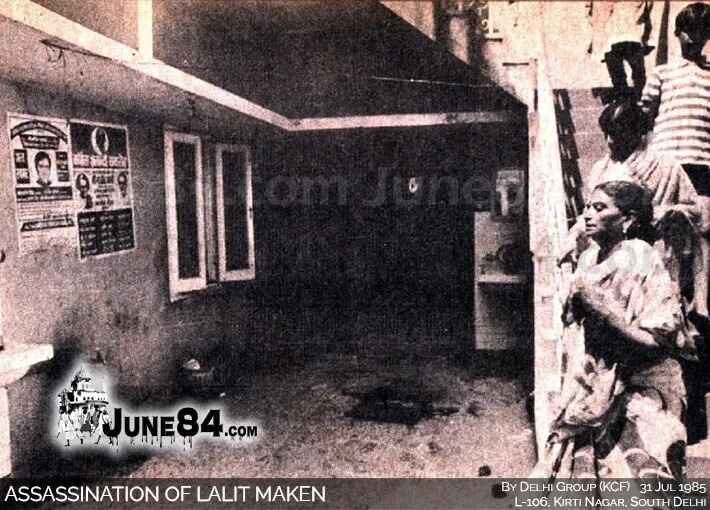The assassination of Lalit Maken was one of the most heartbreaking chapters in India’s political timeline. When Lalit Maken was assassinated in the mid-1980s, it did not just claim the life of a rising leader, but it also sent shockwaves through Indian democracy. Today, the phrase Lalit Maken assassinated stands as both a reminder of political violence and a call to protect democratic institutions. Understanding his journey, his sudden end, and the aftermath provides meaningful insights into leadership, justice, and memory.
Lalit Maken: The Young Politician with Promise
Lalit Maken, a Congress Party figure and Member of Parliament from South Delhi, had earned respect for his dedication to grassroots concerns. Known as a man of action rather than mere words, he worked closely with his constituency, addressing issues like urban development and public welfare.
His political career was considered bright, with many believing he would play a key role in shaping the future of his party. Long before the devastating news of Lalit Maken assassinated, he was already seen as a symbol of youth-driven leadership within the Congress ranks.
How Lalit Maken Assassinated Changed Indian Politics
In July 1985, Lalit Maken was assassinated outside his residence in Delhi. The brutal attack, carried out in broad daylight, shocked citizens across the country. His killing was widely linked to the volatile period following the 1984 anti-Sikh riots.
The fact that Lalit Maken assassinated was not just a crime against one individual but also a political statement underscored the climate of revenge and unrest. Many extremist groups targeted leaders they held responsible for perceived injustices, and Maken became one of the prominent names caught in this cycle of violence.
Why the Memory of Lalit Maken Assassinated Still Matters
Even decades later, the memory of Lalit Maken assassinated continues to matter because it reveals how fragile political systems can become during times of unrest. His death symbolized the dangers of violent retaliation and the costs paid by leaders who stood in the crossfire.
The event also shaped public opinion about accountability in governance. Remembering why Lalit Maken assassinated still resonates helps ensure such violence is never repeated. It serves as a crucial reminder that political disputes should be resolved through dialogue, not bullets.
The Personal Side of Lalit Maken
Behind the political image, Lalit Maken was also a husband and father. His sudden death left his family in immense grief. His wife, Geeta Maken, and their daughter, Avni, had to rebuild their lives while carrying the weight of his legacy.
The personal story behind Lalit Maken assassinated highlights that political killings are never just about leaders; they also shatter the lives of families left behind. That pain, however, has been transformed into resilience, as members of his family have continued engaging with public causes in his memory.
Political Climate That Led to Lalit Maken Assassinated
To understand the full significance of Lalit Maken assassinated, it is necessary to look back at the climate of the time. The assassination of Prime Minister Indira Gandhi in 1984 and the communal riots that followed created widespread anger, suspicion, and cycles of revenge.
In this tense environment, Congress leaders were easy targets for those seeking to balance the scales of justice in violent ways. Lalit Maken’s assassination was not an isolated act but part of a broader wave of retaliation that disrupted India’s political scene in the mid-1980s.
Repercussions After Lalit Maken Assassinated
The aftermath of Lalit Maken’s killing brought grief, anger, and uncertainty. His supporters and constituents were devastated, and the Congress Party lost a promising leader.
Investigations revealed that his assassins had links with international extremist groups, sparking debates on terrorism, security, and political accountability. While some suspects were pursued, many felt justice was incomplete, which remains a sore point in the narrative of Lalit Maken assassinated.
What We Learn From Lalit Maken Assassinated
-
Violence Weakens Democracy: Political assassinations rob nations of their future leaders and destabilize governance.
-
Justice Cannot Be Delayed: Incomplete accountability erodes public trust in institutions.
-
Leadership is Precious: Leaders like Lalit Maken show that genuine political work must be protected from violent forces.
These lessons, rooted in the tragedy of Lalit Maken assassinated, continue to have relevance in today’s highly polarized political environment.
The Continuing Legacy of Lalit Maken
Despite the tragedy, Lalit Maken’s legacy endures. Remembered as a youthful leader who connected with ordinary citizens, his work is often cited as an example of meaningful grassroots politics.
Public spaces, conversations, and historical references keep his name alive, reminding India of both his potential and the violence that cut his life short. For future leaders, the story of Lalit Maken assassinated underscores the importance of standing firm on democratic principles, even in challenging times.
Conclusion: Honoring Lalit Maken’s Memory
The tragic story of Lalit Maken is not only about his assassination but also about the promise he embodied. While the phrase Lalit Maken assassinated captures the pain of his untimely end, his contributions remind us of the positive impact one leader can make in a short span of time.
His life teaches us that democracy is built on dialogue, service, and accountability. His assassination reminds us of what happens when violence overshadows politics. By keeping his memory alive, society reaffirms its commitment to ensuring such tragedies never repeat.


